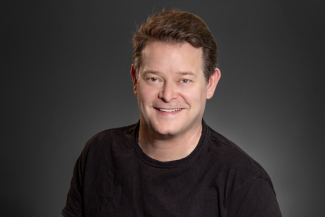Mason Mathews
Tempe Campus
Mason Mathews is an assistant research professor at the Knowledge Exchange for Resilience (KER) in the School of Geographical Sciences and Urban Planning at Arizona State University. Mason is interested in social network and social capital theories and methods and how they can be combined with geographic information systems to understand how communities and individuals respond to social, economic, and environmental shocks. Mason’s current research focuses on how different types of collaboration shape societal outcomes and the resilience of individuals and communities. Mason is currently studying university-community partnerships, inter-organizational collaboration, and collaboration across nation-state boundaries. Mason’s research is designed not only to generate knowledge regarding these research topics, but also to produce tools that can be used by different segments of society to enhance their capacity to form partnerships and collaborate across organizational, disciplinary, and geographic boundaries. Mason is currently working on projects that incorporate text and social network analysis theories and methods to develop tools that help university experts and community organizations develop university-community partnerships in Maricopa County.
Mason is also interested in research that helps people and communities improve disaster management outcomes. From 2018 to 2020 Mason worked as a postdoctoral research associate at the Natural Hazard Center at the University of Colorado Boulder. During this two-year appointment, Mason helped develop the SSEER Census Survey, a global census designed to identify the disciplinary backgrounds of hazards and disaster researchers as well as their research methods, types of disasters studied, and levels of involvement in disaster research. Mason led the development of the Social Science Extreme Events Research (SSEER) Map, a web-based mapping tool that enables users to search for hazard and disaster researchers based on their areas of expertise, types of disasters studied, and other data from the SSEER Census Survey. Mason also led the development of the Global Hazards and Disaster Center Mapping Platform, a web-based mapping tool that enables users to search for hazard and disaster research centers around the world in order to increase connections, communication, collaboration, and access to emerging disaster research both within and across nations.
In addition to creating tools that facilitate research collaboration, Mason is also engaged in primary research designed to understand inter-organizational collaboration in different domains. During his postdoctoral research, Mason lead the development of a social network analysis survey designed to measure levels of collaboration among VOAD member organizations in Arkansas and Nebraska as part of a larger project partnership between the Natural Hazard Center and Save the Children – US.
Mason has worked extensively in Latin America on a number of projects. He did his dissertation research in the Brazilian Amazon where he studied social capital and social movements in remote riverine villages. Mason is a graduate of the University Florida’s Interdisciplinary Ecology doctoral program (Human Geography).
PhD, Interdisciplinary Ecology, Human Geography, University of Florida, Gainesville, FL
M.A., International Affairs-Natural Resources and Sustainable Development, American University, Washington, D.C. and United Nations University for Peace, El Rodeo, Costa Rica
B.S., Natural Resource Recreation and Tourism, Spanish Minor and Certificate in Latin American Studies, Colorado State University, Ft. Collins, CO
Anthropology - Social and Cultural
Geography
Latin American Studies
Social Networks
